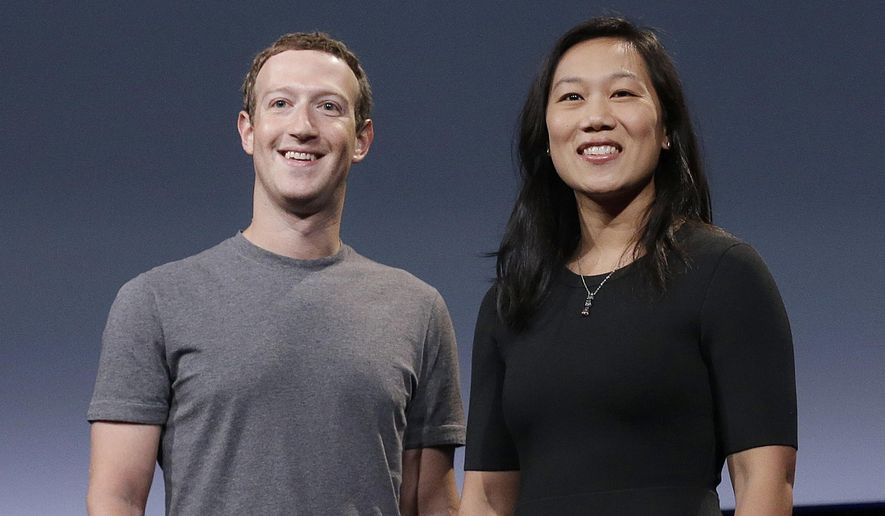The Center for Tech and Civic Life, an obscure nonprofit with ties to Facebook founder Mark Zuckerberg, is helping finance election workers and poll supplies in Georgia’s Jan. 5 Senate runoffs.
Critics call the situation a dangerous anomaly.
Bankrolled with a $350 million donation from Mr. Zuckerberg and his wife, Priscilla Chan, the center is doling out grants to state and local election officials — the people who control the dissemination, collection and counting of votes.
Now they are focused on the crucial runoff elections that will determine which party controls the Senate.
On its website, the center says its goal is to “harness the promise of technology to modernize the American voting experience.”
Conservatives suspect the left-leaning group has a more dubious motivation.
“Imagine if conservative billionaires like the Koch brothers were spending more than a quarter of a billion dollars on how our elections are run,” said Scott Walter, president of the conservative Capital Research Group. “Last I checked, billionaires are evil, especially if they have an influence on elections.”
Mr. Walter testified this week before a Georgia Senate committee about the unorthodox nature of private money oiling election wheels and how CTCL grants appear to have assisted president-elect Joseph R. Biden in the general election.
CTCL did not respond to questions about how much it plans to spend in the Georgia runoffs and where the money will be targeted.
The group announced Nov. 17 that grant requests were being accepted from Georgia election officials for the runoffs.
The runoffs pit Republican Sens. David Perdue and Kelly Loeffler against Democratic challengers Jon Ossoff and the Rev. Raphael Warnock, respectively. Either Mr. Perdue or Ms. Loeffler must win one of the close races for the GOP to maintain its majority in the Senate.
CTCL describes its mission as seeking to expand voter access and knowledge and says its work contributes to election integrity.
Past tax filings show the nonprofit, which was founded in 2012, had annual budgets of about $1 million before the $350 million donation this year from the Chan Zuckerberg Initiative, the couple’s philanthropic organization.
The center said temporary poll workers were the single biggest expense in the Nov. 3 elections, followed closely by “mail/absentee equipment/supplies,” according to the group’s outline of its spending.
Elections officials also spent considerable sums on protective COVID-19 equipment and ballot drop boxes.
Some Georgia lawmakers raised concerns about the lack of transparency when private money is showered on what are normally public operations.
“We really don’t know what the money was spent on,” said Republican state Sen. William Ligon, who headed a state Senate committee hearing on Georgia elections. “But I can tell you the money is not being spent to secure the vote or to ensure the eyes of the public are present in a meaningful way to watch the counting process. That is not happening.”
Despite CTCL’s emphasis on funding election workers, two longtime Fulton County Board of Elections employees were fired on Dec. 15 after testifying before Mr. Ligon’s committee that they had “never seen anything like the lack of controls on the security of the vote” last month.
“That is a complete outrage,” Mr. Ligon said. “And it makes you wonder: what are they using this money for? Because it’s sure not to hire or retain quality workers. They’re firing them.”
Other Georgia lawmakers see the huge donation as a sort of insurance policy for Mr. Zuckerberg and Facebook, as giant social media platforms face threats of losing their liability protection over content that their users post.
“If you don’t think $350 million influences elections, then you aren’t thinking very much about it,” said Georgia Democratic state Rep. Vernon Jones. “What Zuckerberg and others of his ilk are doing is they are financing their accountability. If I can determine the outcome and be in control, then I can get people elected who will not hold me accountable.”
Hans von Spakovsky, an elections expert with the conservative Heritage Foundation and a former member of the Federal Election Commission, said the grants had an enormous impact this year.
“I can’t think of a greater conflict of interest than state and local election officials accepting private money from a private organization, whose donor has made his political views and objectives plain,” he said. “This should be immediately barred by state legislatures, including Georgia’s. It is using private funding to try to manipulate election outcomes.”
Such legislation has been proposed in a handful of states, but none of that will have any bearing on the Senate runoffs next month.
A more precise breakdown of the grant spending will not be available until next year, when CTCL files required paperwork with the IRS.
What is clear thus far is that CTCL money disproportionately flowed to Georgia zones in which Democrats hold a decisive electoral advantage, Mr. Walter said in testimony before the Georgia legislature this month.
“If the Democratic Party was doing this and spending this money, that’s fine,” he said. “I’m not making an argument people don’t get to vote, but what are the rules?”
• James Varney can be reached at jvarney@washingtontimes.com.




Please read our comment policy before commenting.